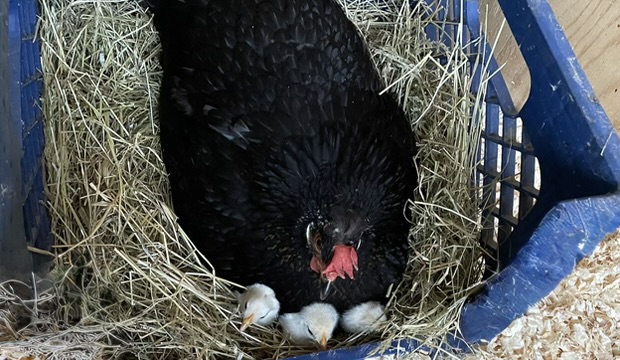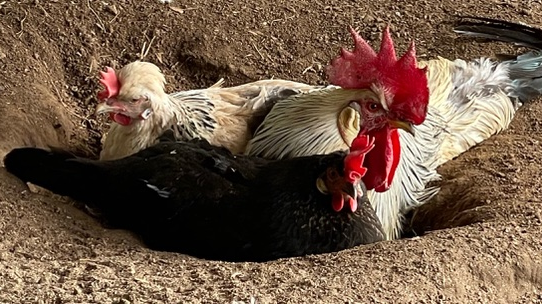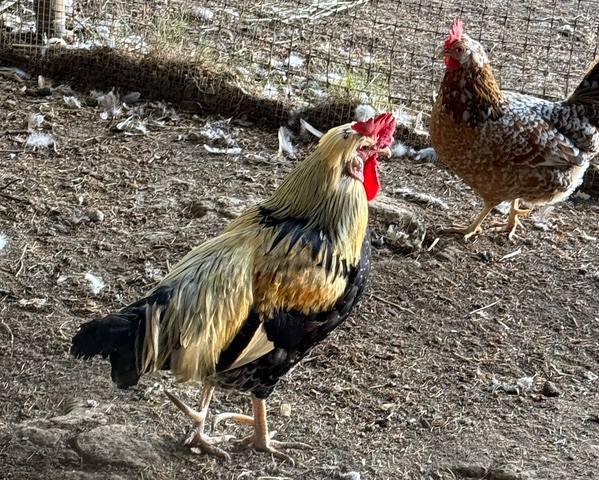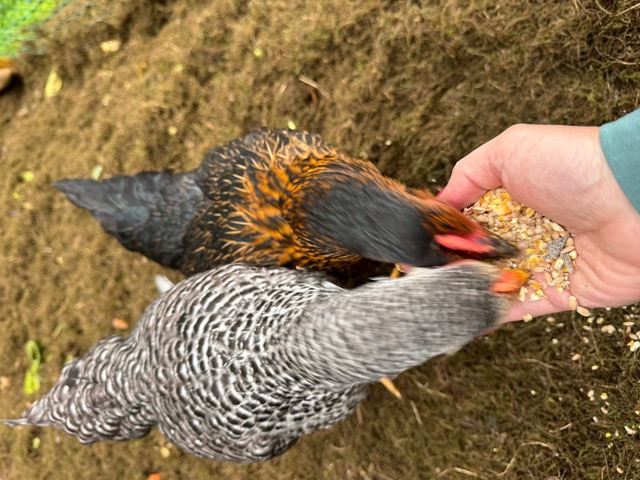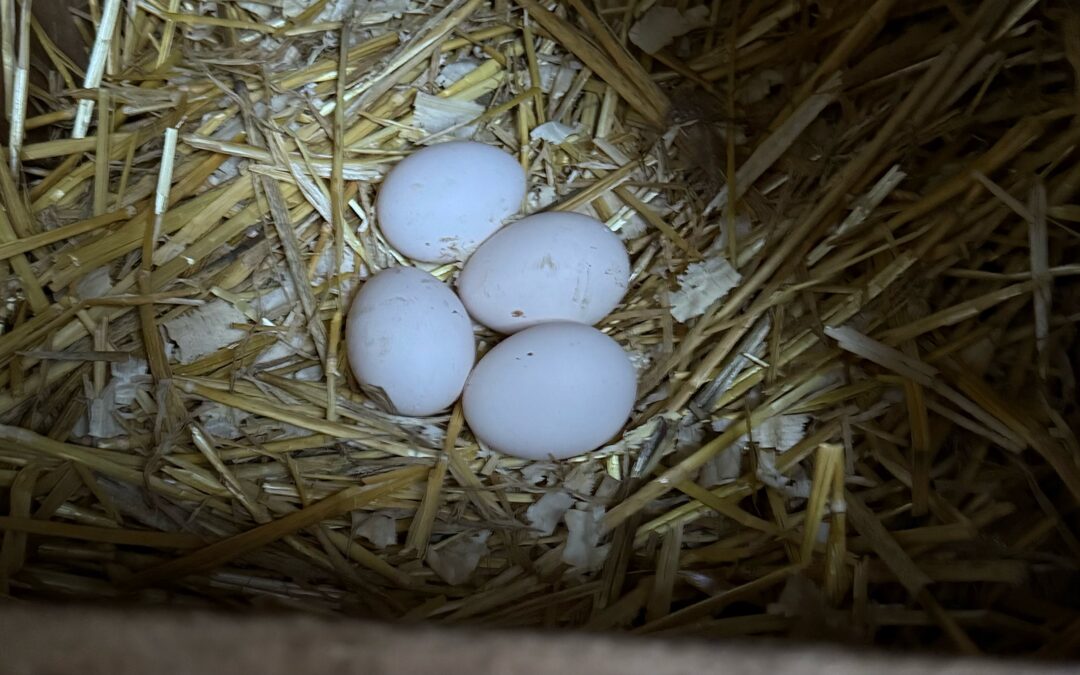
Is it a disaster, or just business?
Being a chicken mama during the winter months is not glamorous. It is all work and no, or minimal, egg production. I know egg production always drops this time of year, but when I see other chicken mamas thriving, I start to question my skills as a chicken mama.
Late this fall, in the midst of this egg production drought, I asked a fellow chicken owner what was happening in her coop, and she told me her hens were laying. I expressed my frustration, and she suggested I give my hens some cookies, saying it might make them start laying. So, I went to the store and got some animal crackers. Still, no eggs. Thinking back on what my chicken coach had suggested, I started giving the hens some scratch, hoping this favorite food would turn things around. And yet, no eggs.
In mid-December, at the peak of my frustration and questioning my skills, I reached out to my chicken whisperer. I asked her what was wrong with my hens. Her response? “Nothing is wrong, Julie. Your hens are fine.” But I was desperate to get my chickens to start laying, just like other chicken mamas had managed to do.
When I finally stepped back, set my emotions aside and looked at the situation, I had to remind myself that this egg drought happens every year. And every year, for some reason right around Winter Solstice, my hens start laying again. So, I waited patiently (OK, not so patiently) for Winter Solstice to arrive, not letting myself make any more changes. And sure enough, on this year’s Winter Solstice, I found one egg in the nesting box.
As it turned out, all the stress, frustration and questioning my skills wasn’t necessary. All I needed to do was think back on previous years and remember that my hens are in their own production schedule. And their production schedule is different from other flocks.
How many of us have found ourselves in similar situations in our businesses? Sales take a dip? The production process has shifted? Our focus isn’t as sharp? Instead of accepting the season and making the most of it, we panic. We start to change processes, or restructure the organization, which only increases stress levels in the people around us.
A better approach may be to slow down and ask, What has changed? Is something really wrong, or is this just the normal fluctuation in my business?
2025 was a challenging year for many of my clients. There was a lot of uncertainty around the economy, which stunted hiring, curbed investment in the business, and in some cases added unnecessary stress for employees. How many leaders, including myself, slowed down and took an objective view of the situation? Is it really necessary to change the way we operate? Or should we just stay the course, strengthen our internal processes and ride this out?
The way to combat challenges in the business is not to add more chaos and start making changes to the organization and its priorities. Instead, I’d encourage you to take a step back and think about the situation in front of you. Has something really changed, or are you just experiencing the normal ebb and flow of the business? Is there something that can be addressed internally that can provide confidence that you are doing the right things to address this external situation? Once you’ve looked at the situation with a clear eye, if you still feel that a course correction is needed, then bring your thoughts to the leadership team so you can all get aligned on priorities and make sure everyone knows their role in executing on those priorities. I know, even from my own experience, that not jumping into action in a perceived crisis takes discipline. But running around and keeping busy may not be the answer, either.
The conversation I had with a client at the end of 2025 captured what I aim to help my other clients accomplish. This client recognized his firm’s difficulty with growth in 2025, but then he said, “Even with all that, I wouldn’t change any of my activities around sales and marketing. I’m confident they are the right things to focus on.” That clarity came from slowing down, recognizing where the economy was, understanding the strength of his processes and staying the course.
Do you have that level of confidence when faced with uncertainty in your business? If not, let’s talk. I can help you and your leadership team assess the situation you’re in and decide if you really need to make a change, or if it’s a matter of staying the course through the normal ups and downs of your business.

